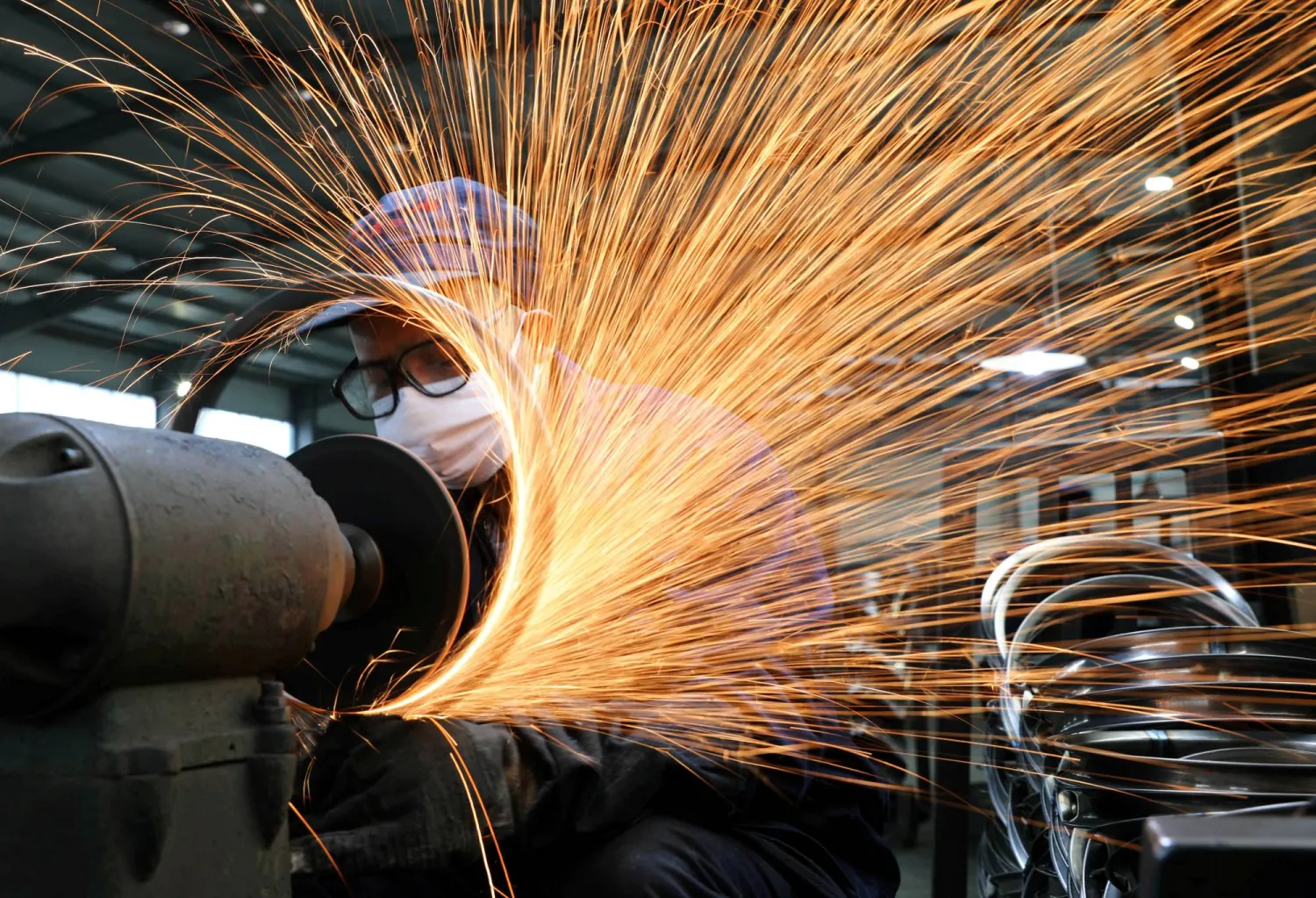China's manufacturing slowed to a six-month low in August, an official factory survey showed on Saturday, raising expectations policymakers will unveil fresh plans to direct more stimulus to households and less to infrastructure projects.
The official purchasing managers' index (PMI) declined for a fourth month to 49.1 in August from 49.4 in July, below the 50-mark separating growth from contraction and missing a median forecast of 49.5 in a Reuters poll.
In contrast, the non-manufacturing PMI, which includes services and construction, quickened to 50.3 from 50.2.
The world's second-biggest economy started the second half of the year on a shaky footing, with dismal exports, prices and bank lending indicators for July showing demand losing steam.
The recovery most analysts had expected following China's lifting of its strict COVID-19 pandemic curbs in 2022 has so far eluded the $19 trillion economy.
Last month, Beijing signaled it was ready to deviate from its playbook of pouring funds into infrastructure projects. Analysts have broadly welcomed support targeting consumer spending but warn other policy levers will need to be pulled if the government is to hit its annual growth target of around 5%.
There have been some green shoots, with retail sales topping forecasts last month.
But more specific details on how China plans to reinvigorate the 1.4 billion-strong consumer market remain to be seen, with officials so far only pledging to "focus on boosting consumption to expand domestic demand".
Weighing heavy on consumer spending has been a bruising slump in the property sector over the past three years.
With 70% of household wealth held in real estate, which at its peak accounted for a quarter of the economy, consumers have kept their wallets tightly shut.
There is little sign that policies aimed at restoring confidence are having the desired effect, as China's new home prices fell at the fastest pace in nine years in July.
A Reuters poll on Friday showed home prices would fall 8.5% in 2024, deeper than the 5.0% decline tipped in a May survey.
China's August Manufacturing Slips to 6-Month Low

FILE PHOTO: A worker wearing a face mask works on a production line manufacturing bicycle steel rim at a factory, in Hangzhou, Zhejiang province, China March 2, 2020. China Daily via REUTERS/File Photo

China's August Manufacturing Slips to 6-Month Low

FILE PHOTO: A worker wearing a face mask works on a production line manufacturing bicycle steel rim at a factory, in Hangzhou, Zhejiang province, China March 2, 2020. China Daily via REUTERS/File Photo
لم تشترك بعد
انشئ حساباً خاصاً بك لتحصل على أخبار مخصصة لك ولتتمتع بخاصية حفظ المقالات وتتلقى نشراتنا البريدية المتنوعة








